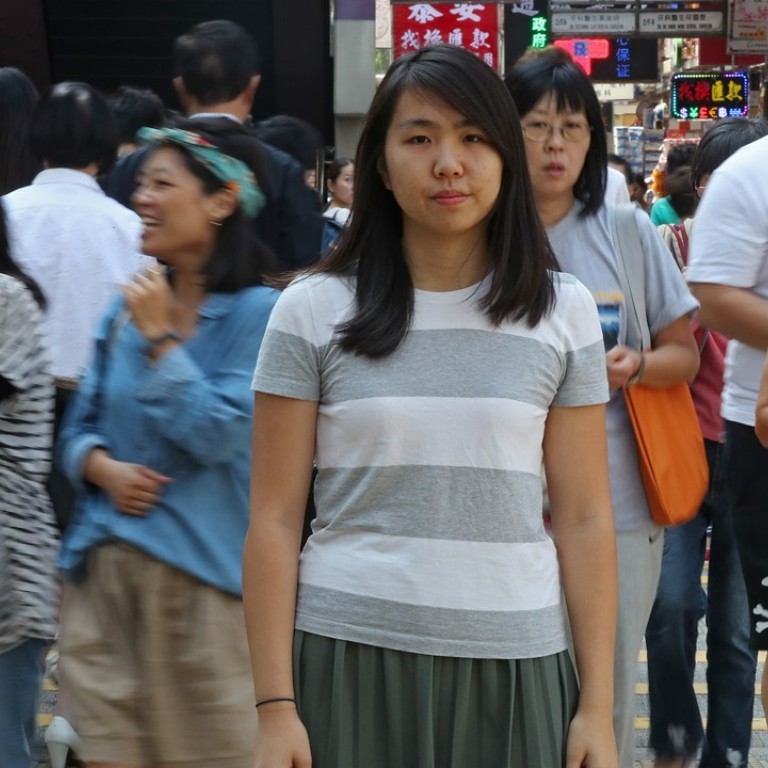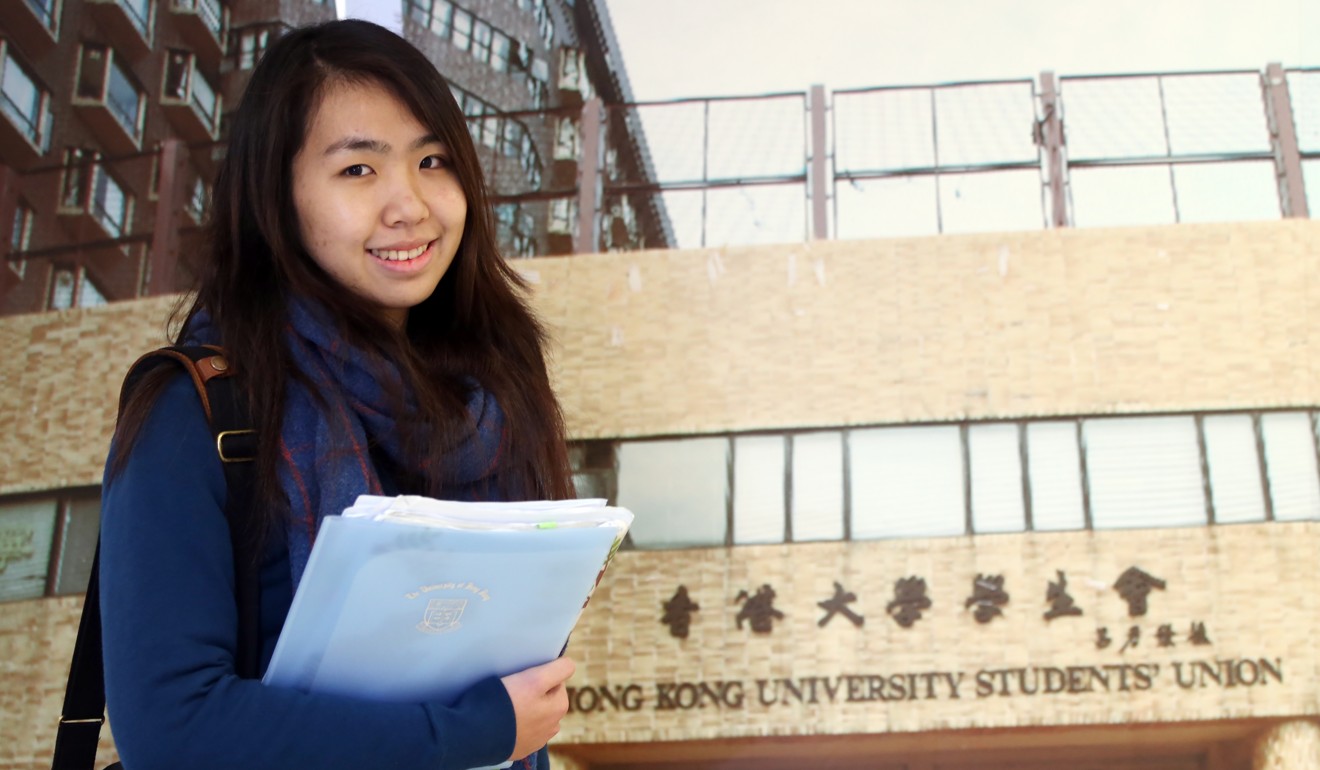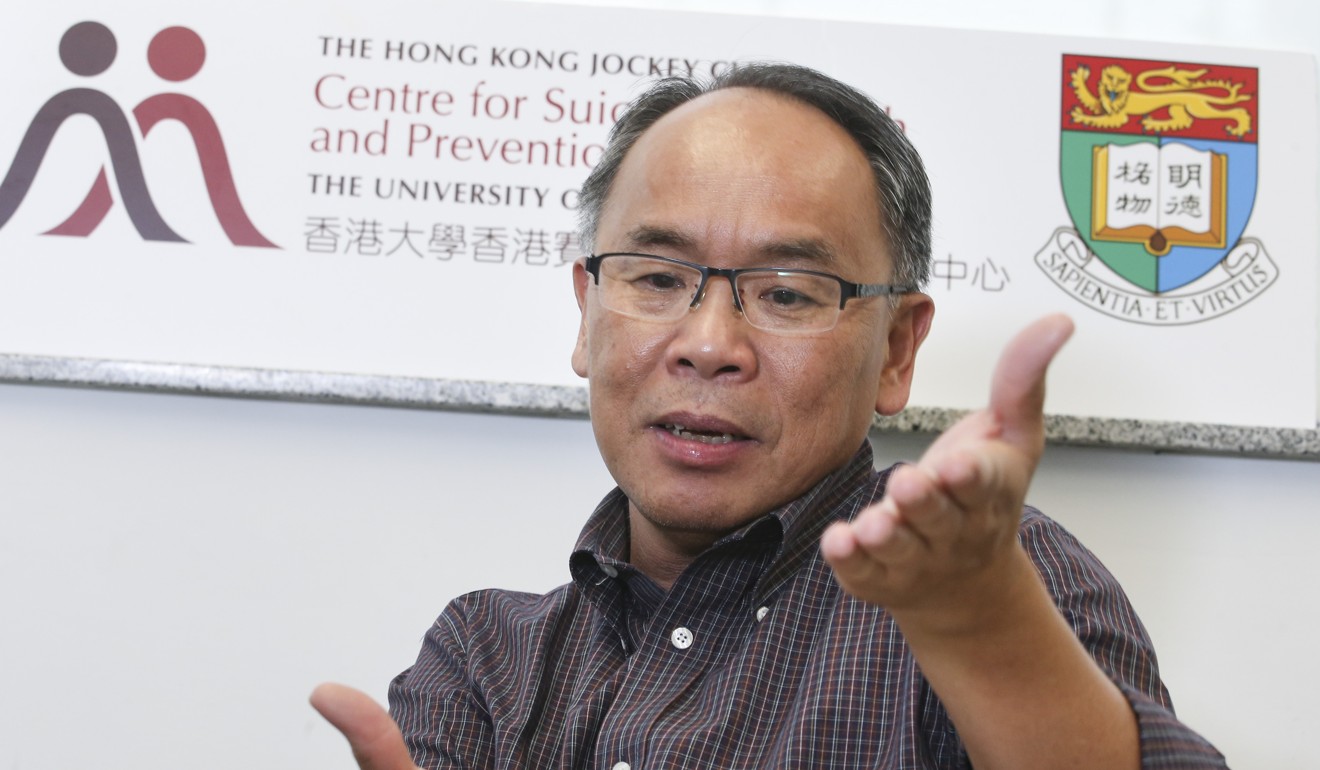
Lone student on Hong Kong suicide prevention committee blasts report
Criticisms that her views were disregarded come as officials seek to engage young people in policymaking
When Althea Suen Hiu-nam, then president of the University of Hong Kong’s student union, received a phone call from the Education Bureau inviting her to the committee on prevention of student suicides, little did she know the outcome would deviate far from her expectations.
From 2013 to last year, 71 pupils and students aged between 10 and 30 killed themselves, prompting the government to set up the ad hoc committee to tackle the issue in March last year.
But Suen, 21, was the only youth member in the 21-member committee. She accused pro-establishment forces of dominating the discourse and disregarding her views.
Fitness network to equip Hong Kong youngsters for life’s hurdles
“Several times, as I gave my first-person account about flaws in the education system, other committee members dismissed my views as unscientific or not evidence-based,” the final-year social work student claimed.

But Suen questioned whether the government was sincere in engaging young people in policymaking.
“My main point in the committee was how Hong Kong’s exam-oriented education was creating undue academic pressure and taking a toll on teacher-student relationships as teachers lack sufficient time to take care of students’ mental well-being.”
I was appalled with the findings. My views were almost absent
After six months of meetings, the committee issued a 150-page report detailing the complex causes of suicides. It stated there was “no substantial direct link between student suicides and the education system” and citing findings obtained from “evidence-based case analysis”.
“I was appalled with the findings. My views were almost absent,” Suen said.
She criticised the current set-up of government committees as unfriendly to young people who had full-time jobs. The six general meetings she attended, for example, all took place during business hours on weekdays.
“It would be easier for senior executives or professionals in the committee to take time off to attend meetings, but young people would have difficulties getting away.”
Suen also hoped more of her peers would get orientation on future panels to facilitate communication with their senior counterparts.
To prevent teen suicide, cap number of hours Hong Kong pupils study, group urges
“I was not given any orientation before joining the committee, so it took a lot of time to understand some education jargon like SENCO [special education needs coordinator] and EP [education psychiatrists] in the meetings.”
But she acknowledged the importance of having young voices on advisory bodies and thought her participation had directly put forth students’ views to the government.
Paul Yip Siu-fai, director of HKU’s Centre for Suicide Research and Prevention, chaired the committee and said he welcomed Suen’s participation. Yip appreciated that she invited eight other university student leaders to give their views as speakers.

“We accepted her views,” he said. “The summary in the report might not be the same as what an individual member said. The report is representative of the different views of our members.”
“Although the report found no direct link [between the education system and suicides], that does not mean there’s no link at all,” he added. “The evidence from our study shows suicides have various and complex causes. For example, a dysfunctional family plays a part.”
Joseph Wong Wing-ping, former secretary for the civil service, said officials should be open-minded to young voices or their efforts to engage them would be “futile”.
Suicides among Hong Kong children accounted for quarter of unnatural deaths in 2012 and 2013
“People will judge whether youth policy is genuine or just a gimmick and political marketing,” he said. “That depends on whether the government is willing to accept views that are different from its stances and select young people from across the political spectrum.”
Wong believed that if the new youth committee members were mostly pro-establishment, officials would be accused of paying lip service to the pledge of accepting other views.
“The test of the pudding is in its eating,” he added.

